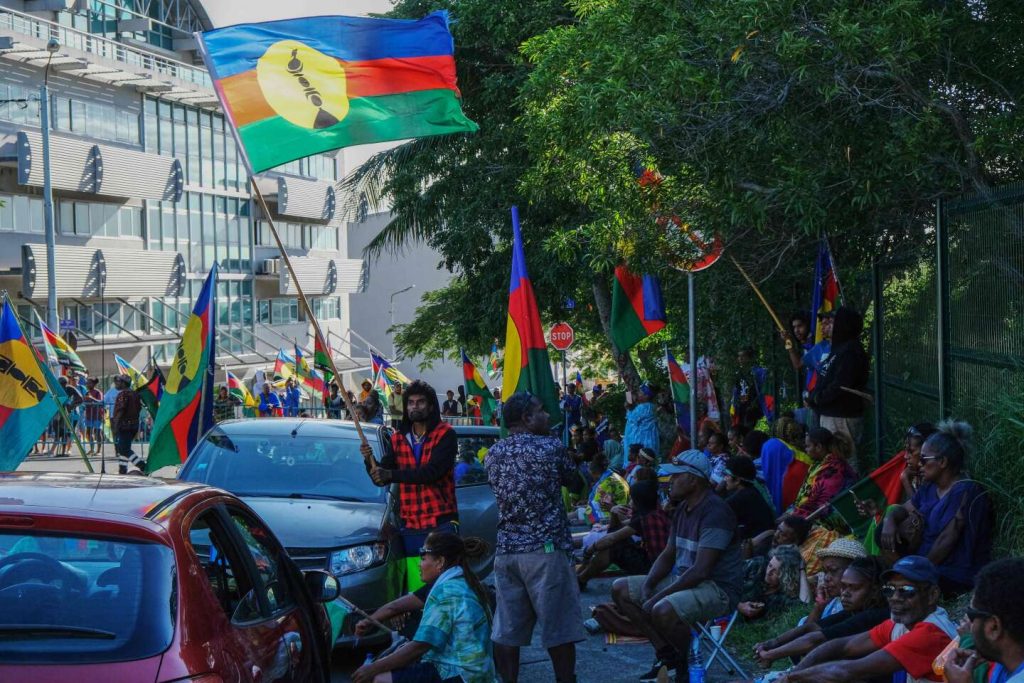Violence erupted in Nouméa, New Caledonia, as protesters clashed with law enforcement on the night of May 13th and early morning of May 14th. The protests were sparked by opposition to a constitutional revision being reviewed by French Parliament that was criticized by New Caledonian independence activists. An embottling plant was deliberately set on fire and destroyed, while several supermarkets and car dealerships were looted and set ablaze. Police and gendarmes faced off against masked and hooded young protesters who blocked roads with fires and clashed with law enforcement using rubber bullets and concussion grenades.
The unrest began as part of the independence movement’s opposition to the constitutional reform being debated in Parliament. The reform aims to expand the electoral base for crucial provincial elections in New Caledonia, which has been frozen since 1998 under the Nouméa Accord. The current situation disenfranchises nearly one-fifth of voters. Interior Minister Gérald Darmanin argued that the reform is necessary to uphold democratic principles, while independence supporters fear it could further marginalize the Kanak indigenous population. The proposed governmental project is set for a formal vote by deputies on Tuesday afternoon.
As the violence escalated, authorities made a number of arrests and reported injuries among law enforcement personnel. Gendarmes were particularly targeted, with 26 officers injured, including one seriously with an eye injury. To prevent further incidents, the Raid, four mobile gendarme units, and two specialized urban violence control units were dispatched as reinforcements. A major road near Nouméa was blocked by protesters, while popular neighborhoods were also affected by road closures. The High Commissioner of the Republic in New Caledonia condemned the public road blockages and vowed to address the illegal actions of the disruptors.
Areas such as the Saint-Louis tribe in Mont-Dore, a stronghold of the independence movement, faced road closures due to violent protests. Law enforcement efforts were focused on maintaining order and ensuring the safety of all residents in the midst of the disturbances. The High Commissioner issued a statement condemning the blockages and confrontations, and announced alcohol sales and weapon transportation would be banned in New Caledonia on the following days to prevent further unrest. President Emmanuel Macron called for calm and directed the government to restart negotiations to resolve the crisis.
The ongoing unrest in Nouméa highlights the deep-seated tensions surrounding the issue of New Caledonian independence and the constitutional reforms being proposed by the French government. The clashes between protesters and law enforcement underscore the challenges of finding a peaceful resolution to the political and social issues that continue to divide the region. The response of the authorities and the measures taken to prevent further violence will be crucial in determining the path forward for New Caledonia and its aspirations for self-determination. The situation remains volatile, with concerns over the potential for further escalations and the need for dialogue and compromise to address the underlying grievances.


